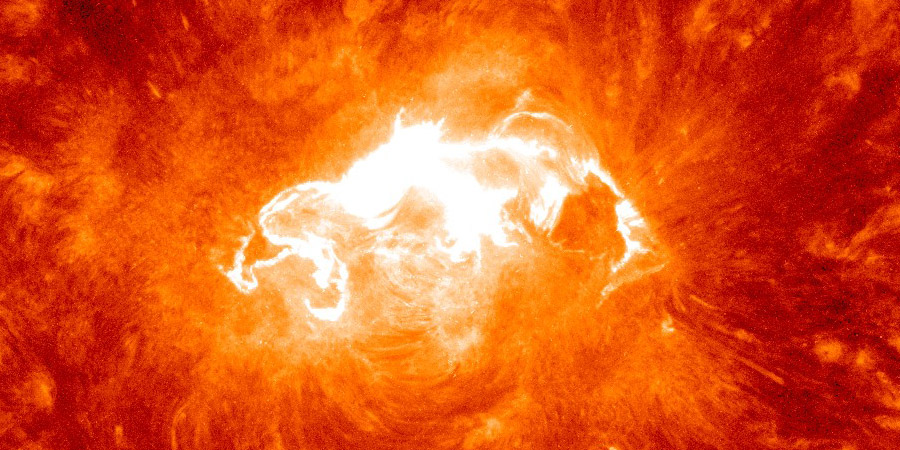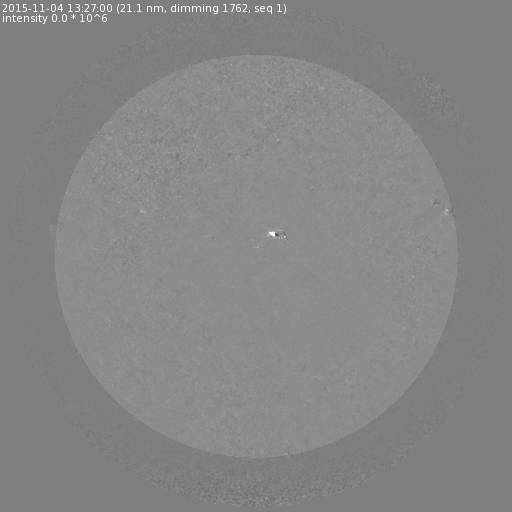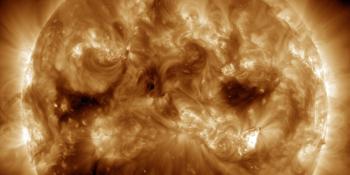M3.7 solar flare from sunspot region 2443
Wednesday, 4 November 2015 14:45 UTC

It took a long time but finally sunspot region 2443 seems to deliver. This earth-facing sunspot region produced at 13:52 UTC a long duration M3.7 (R1-minor) solar flare.
Strong M3.72 solar #flare from #sunspot region 12443 - Follow live on https://t.co/XHATH0OOfT pic.twitter.com/AcJze6Aa1A
— SpaceWeatherLive (@_SpaceWeather_) 4 november 2015
Early indications show that a coronal mass ejection has likely been launched following this solar flare as NOAA reports Type II and IV radio sweeps and SDO shows darkening of the corona, something which is knows as coronal dimming and this is an excellent sign that a coronal mass ejection has been launched.
ALERT: Type II Radio Emission Begin Time: 2015 Nov 04 1343 UTC Estimated Velocity: 955 km/s
ALERT: Type IV Radio Emission Begin Time: 2015 Nov 04 1351 UTC

Image: SDO animation from the SIDC showing coronal dimming and a large-scale coronal propagating front. Classic signs that a coronal mass ejection has been launched.
An earth-directed component is very likely and more information will be provided once we have SOHO coronagraph footage.
Thank you for reading this article! Did you have any trouble with the technical terms used in this article? Our help section is the place to be where you can find in-depth articles, a FAQ and a list with common abbreviations. Still puzzled? Just post on our forum where we will help you the best we can!
Latest news
Latest forum messages
Support SpaceWeatherLive.com!
A lot of people come to SpaceWeatherLive to follow the Sun's activity or if there is aurora to be seen, but with more traffic comes higher server costs. Consider a donation if you enjoy SpaceWeatherLive so we can keep the website online!

Space weather facts
| Last X-flare | 2025/03/28 | X1.1 |
| Last M-flare | 2025/03/31 | M1.2 |
| Last geomagnetic storm | 2025/03/27 | Kp5 (G1) |
| Spotless days | |
|---|---|
| Last spotless day | 2022/06/08 |
| Monthly mean Sunspot Number | |
|---|---|
| February 2025 | 154.6 +17.6 |
| March 2025 | 127 -27.6 |
| Last 30 days | 127 -25.7 |


